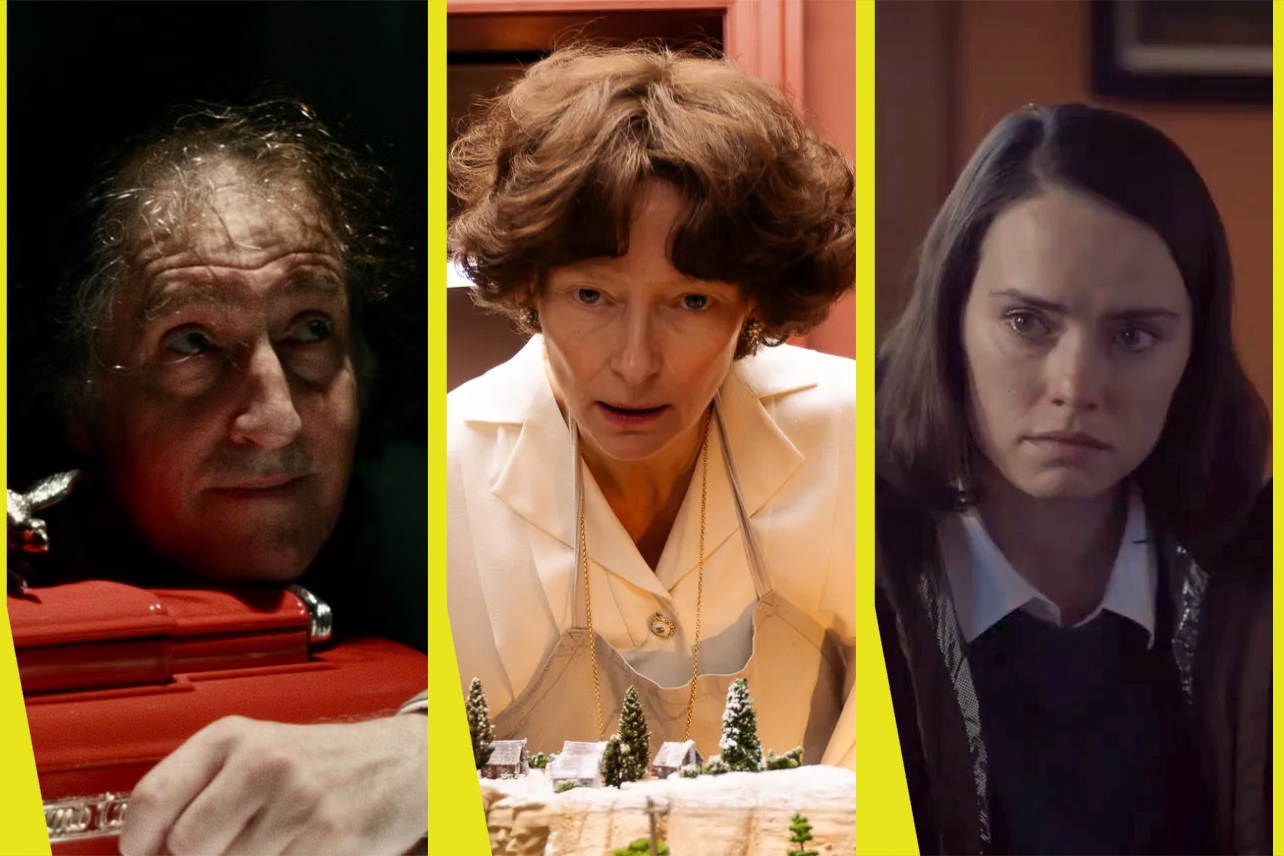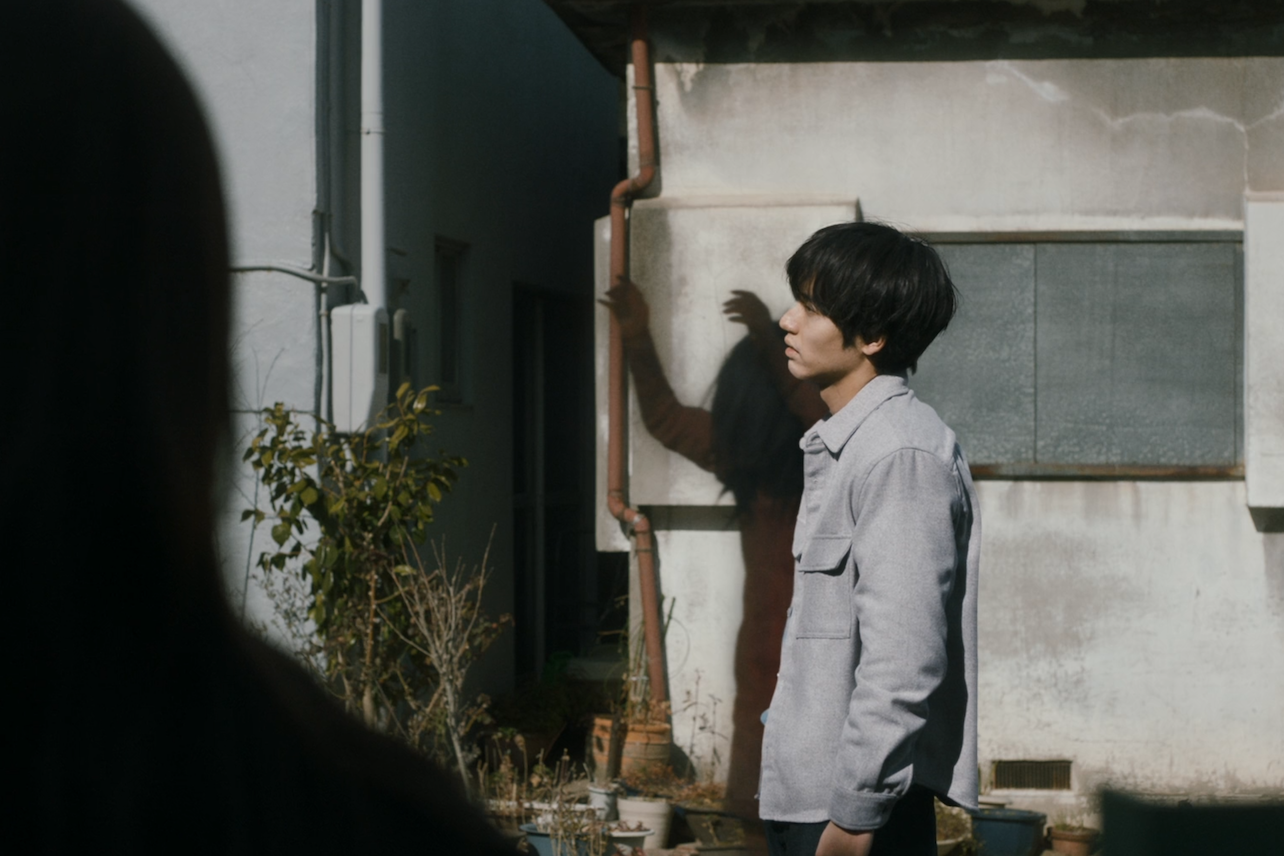Gladiators. Witches. Messiahs. Incel clowns. 2024 has been a year of long-awaited and overdue sequels and adaptations, plus a sequel or two no one asked for, but which Hollywood delivered regardless. Between that and the year-end awards season's usual noise, losing track of the smaller, under-promoted films on the release calendar is an inevitability. Movies tumble between the cracks. It's an annual tradition.
The year's biggest movies alternatively give little and plentiful reason to hope that our better angels can triumph over our demons; it's only fitting that some of its smallest movies, ones that didn't make a blip on pop culture's radar, should follow the same pattern. Here are five must see movies you overlooked in 2024.
The End
Directed by Joshua Oppenheimer; written by Joshua Oppenheimer & Rasmus Heisterberg; starring George MacKay, Moses Ingram, Tilda Swinton, & Michael Shannon
If you were veritably forbidden from returning to the country where you shot your breakout movies, you might pivot and make an idiosyncratic, glossy musical about the end of the world as your third feature, too. For as much as The End wildly differs in form and style from Joshua Oppenheimer's first two films — the early-2010s documentaries The Act of Killing and The Look of Silence — their core concerns echo in its plot all the same. The wealthy and powerful will always sanitize their crimes if they get to write the historical record: We didn't just engineer the apocalypse; we did charitable work, too!
The End is set in a lavish bunker occupied by a family (Tilda Swinton, Michael Shannon, George MacKay), their butler (Tim McInnerny), their doctor (Lennie James), and their friend (Bronagh Gallagher). When a stranger (Moses Ingram) comes knocking, the balance established in the shelter splinters; cue musical numbers. It's weird and uncannily appropriate that The End's characters break out in song to express their innermost feelings or glaze over past sins. It's a reflection of their high mindedness as well as a nod to The Act of Killing's use of cinema as both a confessional booth and a means of reenactment. Somehow, Oppenheimer's artifice makes the darkness go down easier — but just a little bit.
Crumb Catcher
Directed by Chris Skotchdopole; written by Chris Skotchdopole, Larry Fessenden, & Rigo Garay; starring John Speredakos, Rigo Garay, Ella Rae Peck, & Lorraine Farris
The last eight years of American political cinema contains its share of movies adapted from history and headlines, with little mystery about intent left to the imagination. Chris Skotchdopole's unhinged debut Crumb Catcher heads the opposite direction: the film doesn't betray itself by declaring outright what, or who, it's "about." You have to work that out yourself.
Honeymooners Shane (Rigo Garay) and Leah (Ella Rae Peck), plagued by implied, stewing tensions, put their friction on pause when their rental house is called on by uninvited guests: John (John Speredakos), a waiter at their wedding reception, and his wife, Rose (Lorraine Farris). They've stalked the newlyweds to offer them a once in a lifetime opportunity to get in on the ground floor of the next consumer craze — or else. Crumb Catcher is a nail-biting ode to American failure, where side-hustle-and-grind entrepreneurship synthesizes with the insecurities wrought by our bootstraps mentality; it's a chiller about entitlements and unearned outrage that's attuned to our times through black comic plotting.
Things Will Be Different
Directed & written by Michael Felker; starring Riley Dandy & Adam David Thompson
Without a doubt, this is 2024's bleakest movie; imagine a silent "not" in the title. You may know Justin Benson and Aaron Moorhead for their work on Marvel's Moon Knight, or for their indie sci-fi/horror films, like Something in the Dirt, The Endless, Spring, or Synchronic. You're less likely to know their editor, Michael Felker, here making his feature debut. Things Will Be Different is a chip off the ol' Benson and Moorhead block, but without a shred of hope. The technology is low-fi. The characters are keenly realized by the primary cast, Riley Dandy and Adam David Thompson playing estranged siblings on the lam and laying low in a mysterious time-shifting farmhouse. Its plot implications are philosophically dense. What distinguishes Felker's work from Benson and Moorhead's is his full embrace of crushing fatalism, striking a stark but welcome contrast to hope in a decidedly hopeless age.
Sometimes I Think About Dying
Directed by Rachel Lambert; written by Kevin Armento, Stefanie Abel Horowitz, & Katy Wright-Mead; starring Daisy Ridley, Dave Merheje, & Macia DeBonis
Once a Star Wars icon, always a Star Wars icon. Daisy Ridley will never shake her relationship to that saga, not the least because she's due to reprise her role as Rey in a future film (directed by Sharmeen Obaid-Chinoy, the first woman to pilot a Star Wars movie, which won't anger geek culture's Knights Templar at all). Fortunately, she's found room in her career's margins to star in projects of smaller scales and scopes, too, and fully work out her muscles as an actor.
Rachel Lambert's Sometimes I Think About Dying might be the best of those indie productions — or, barring that, the most inspiring for Ridley. She's never been better. Here, she plays Fran, an introverted office drone who whiles away her time with suicidal ideation. Her firm's new hire, Robert (Dave Merheje), disrupts her pastime: How can she fixate on death if she's fixating on him? Sometimes I Think About Dying is a dreary, deeply sad movie, even in its tender moments; being a person, as Fran's retired coworker (played by the prolific Marcia DeBonis) astutely puts it, is hard. Living is hard. Maybe pondering death is one way to get through it — but letting people in is much better.
Chronicles of a Wandering Saint
(Directed & written by Tomás Gómez Bustillo; starring Mónica Villa & Horacio Marassi)
Talking about Tomás Gómez Bustillo's excellent metaphysical comedy drama Chronicles of a Wandering Saint without giving away the "twist" he springs about 37 minutes in is nigh-impossible; if you've seen Kirk Jones' Waking Ned Devine, and if you remember the climax, then it's a bit like that. Piety takes effort. But a staged miracle, devised to lend the appearance of piety? That takes devotion. Bustillo's lead, Mónica Villa, is unassuming as she connives her way toward spiritual admiration, but as Chronicles of a Wandering Saint moves one step closer, scene by scene, toward genuine epiphanies about the quotidian miracles we take for granted every day, her ego softens. So does our judgment. A beautiful little ode to how people's memories live on even in the most commonplace objects and spaces.






